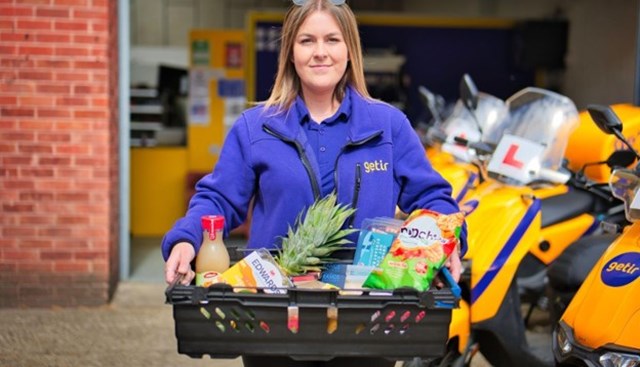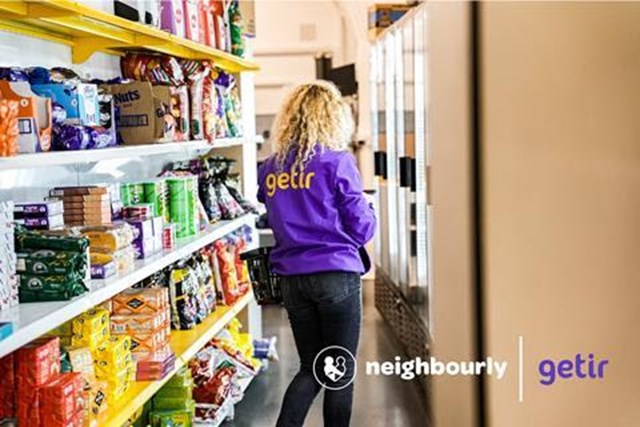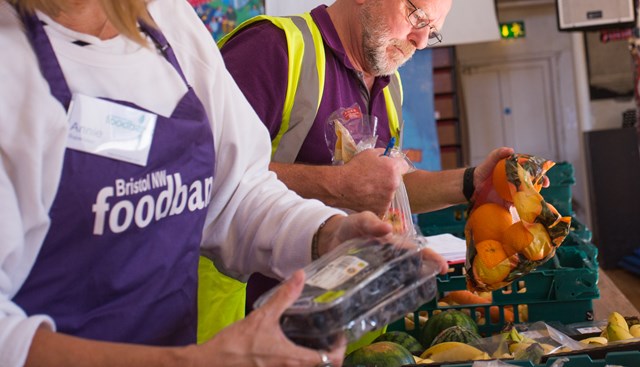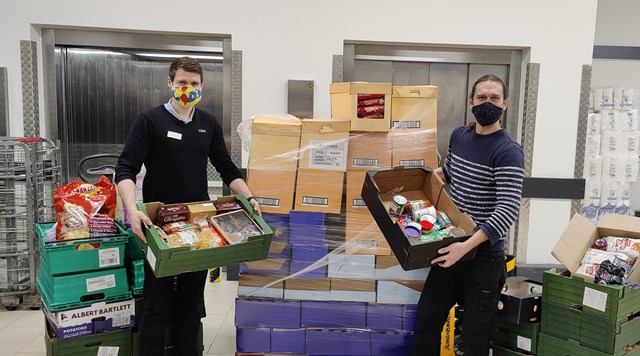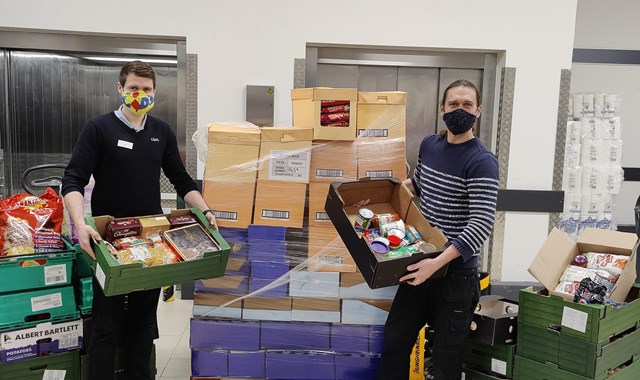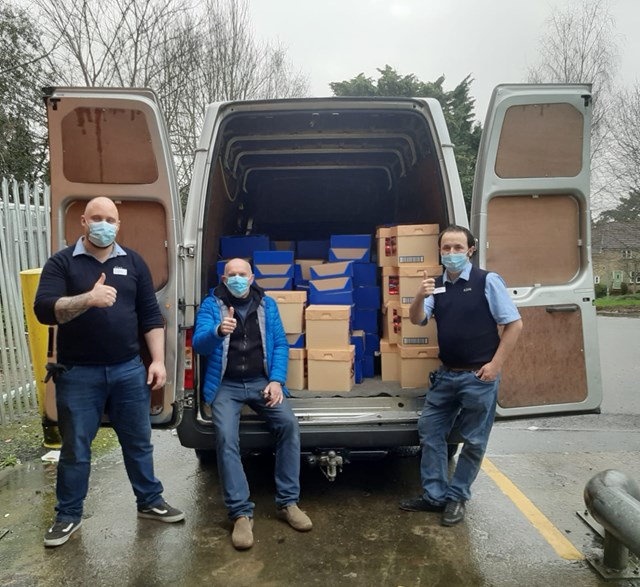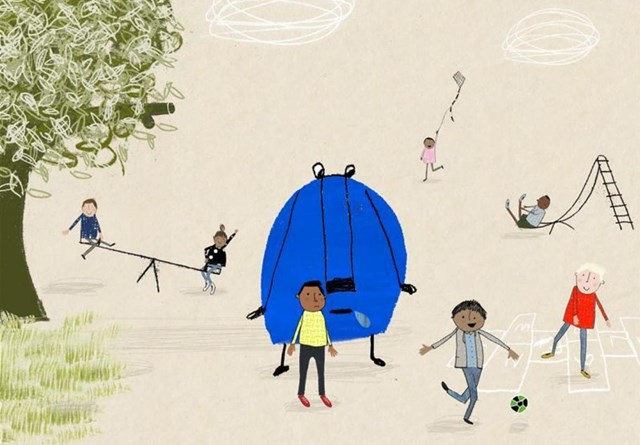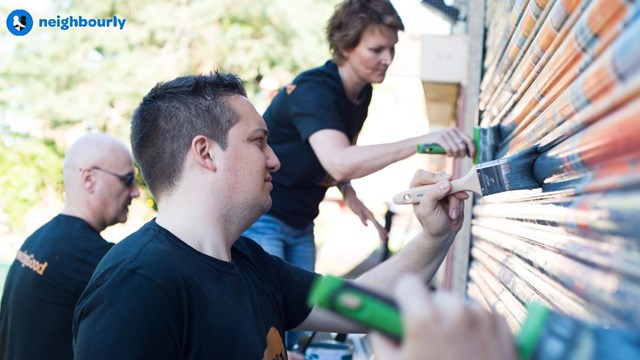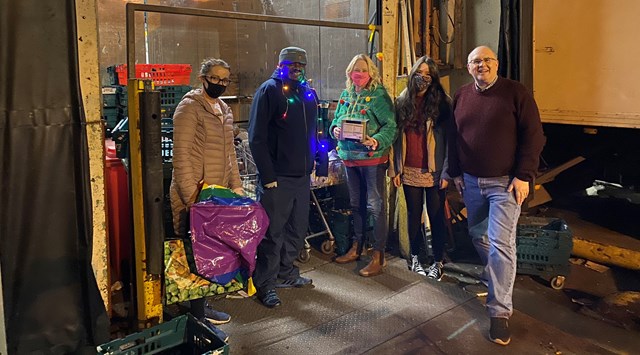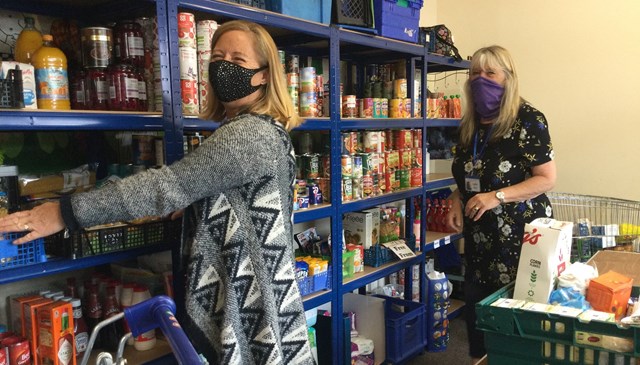
Food insecurity has come to the forefront of the minds of politicians and the public more than ever before in the last year, as society has grappled with the social and economic impacts of the Covid-19 pandemic.
According to the UK Government definition, food insecurity "covers a wide range of circumstances; where there is risk of, or lack of access to, sufficient, varied food."
The definition covers a vast range of circumstances. For some food insecurity means some are unable to afford enough food to meet their needs, for others it means they have enough food but it is of low quality and nutritional value, impacting their health and wellbeing.
Surveys of Neighbourly-registered good causes in the early-stages of the pandemic showed a steep rise in demand for services, particularly amongst food banks offering emergency food parcels. Whilst The Trussell Trust statistics show that emergency food bank parcels going to children has increased by nearly 50% in the last two years alone.
Food Inequality
The UK Government’s Department for Work and Pensions (DWP) recently released much awaited research data (covering 2019/2020) on the state of food insecurity in the UK..
Looking at food insecurity from the lens of many different factors, including age, ethnicity, income and housing status to name just a few, the data highlighted significant disparities in food security across some of the UK’s most vulnerable groups.
The most impacted groups included households with children, disabled people, young people (aged 16-24) and those from Black and Afro-Caribbean communities - all of whom are significantly more likely to be living with low or very low food security.
Those in receipt of income-related benefits were some of the worst affected, with a quarter living with food insecurity. For those on Universal Credit, a shocking 43% were reported to be living with food insecurity.
The picture this data paints is that food insecurity is unfairly impacting the most on vulnerable and minority groups. Not only that but the data demonstrates the complex nature of food insecurity, affecting different groups in different ways and at different levels.
Whilst income is a factor, food insecurity is not as simple as not having enough money to buy food. It covers access to fresh and nutritious food, access to decent facilities, access to education on nutrition, physical and mental health, structural inequalities and a whole host of other factors.
A Community Response
This Spring, our Community Survey of over 1,200 local good causes found that a third of groups collecting food surplus via Neighbourly’s partner businesses had set up a new foodbank service as a direct response to the pandemic.
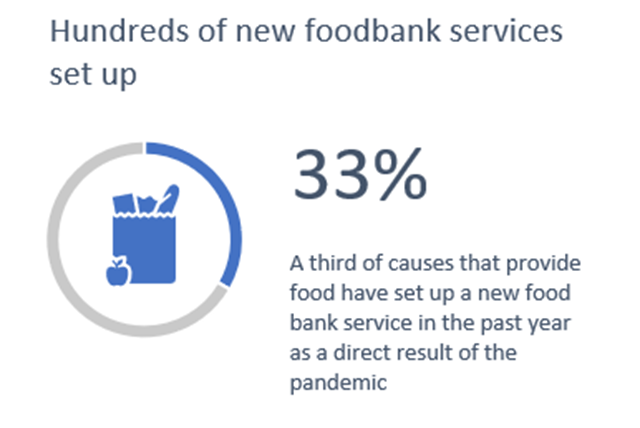
This rise in the number of informal, local-community based foodbanks is a sign of increasing struggles for society’s most vulnerable and marginalised groups.
“Most people who use the foodbank are working parents”
Local communities are seeing and experiencing the impact of poverty and food insecurity first hand and, in response to stretched social and government services, are coming up with their own solutions to meet these needs at a local level.
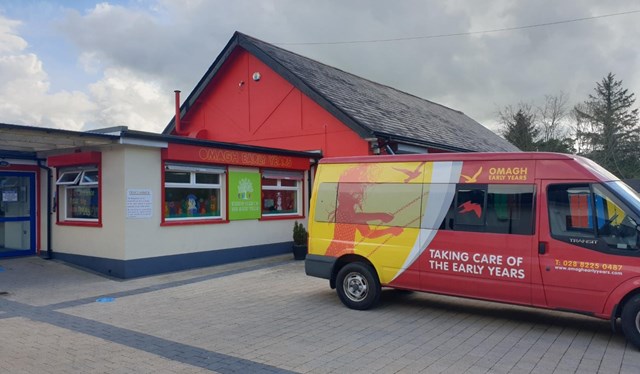
Omagh Early Years Centre (pictured above) is a childcare facility and after school club that serves 185 families with children aged from 12 weeks to 12 years old. Like so many children’s centres, nurseries and schools, they set up their own food bank for the first time at the start of the Covid-19 pandemic - in order to support those families most in need.
Ciara McKenna, Centre Manager told us: "Many parents with children have limited budgets and, with all the additional pressures that Covid has brought, we wanted to work with families and organisations in our community, to help reduce financial stress, food poverty and food waste.
“Most people who use the foodbank are working parents and some were initially embarrassed about accessing the foodbank. We want to support any family who can use extra food and we offer a discreet pick-up service. We would encourage any family who could use this foodbank to come forward - there are no judgments made, we are here to help.”
“Many families have got into so much debt due to losing their jobs [in the pandemic]”
The story echoes across the UK with The Portchester Pantry - another example of a community food bank set up in response to the pandemic.
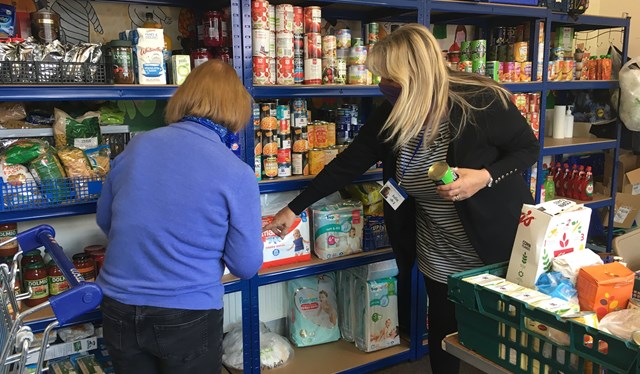
Foodbank Coordinator Julie Sexton (pictured above right) tells us: "People were being furloughed and so had less money coming into their household. We delivered the food at the beginning as people were isolating, especially the elderly. As time went on, families with children were spending more on food as the children were at home all day.
"A year on from the start of the pandemic, many families have got into so much more debt due to losing their jobs and now being on benefits.
"Now the Pantry has moved to The Hub (part of Portchester Community Association) and we will also be starting a membership scheme where people can pay £5 and get up to £20 worth of shopping to help them back to independence. This will run alongside the foodbank which will always be free for those in most need."
What’s needed
Our Spring Community Survey revealed that, despite the UK’s more recent steady emergence from the Covid-19 lockdown, demand for services is continuing to rise, with local good causes still suffering dramatic loss of income that’s only predicted to worsen in time.
When it comes to organisations that are offering a food service (e.g. foodbank, community kitchen, soup kitchen etc), 88% need to carry out a weekly ‘top up shop’ on top of the food donations they receive to ensure they have enough essential food and other household items to support those most in need.
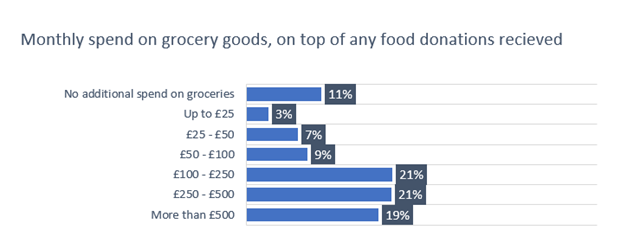
When asked which food items these organisations most commonly purchased as part of top ups, the most popular items (in order) were food cupboard items, fresh dairy items, fresh fruit, veg and salad, personal health and hygiene items and laundry, household and cleaning products.
For the majority, meeting the needs of their local communities relies on donations (both financial and essential items) from a multitude of sources.
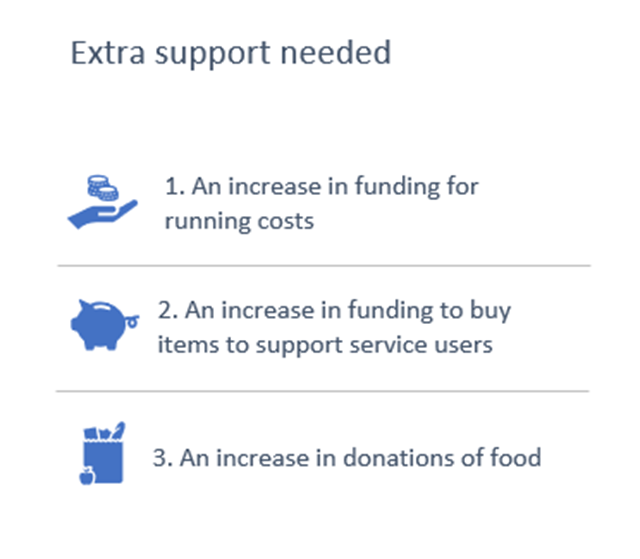
Tip of the iceberg
The rise in community foodbanks is the tip of the iceberg, indicative of critical levels of food insecurity across the UK that desperately needs to be addressed.
The nation’s community causes provide a vital service to meet the needs of people on a local level - but more and more they are forced to use valuable and depleting resources to meet basic human needs - fighting fires instead of being able to invest in the long-term happiness and wellbeing of communities.
Working together, businesses and the public have a real opportunity, right now, to have a meaningful impact on society by ensuring good causes have the right support to help local people pull themselves out of poverty and associated food insecurity.
When good causes have adequate resources, they can not only fight fires - but can also focus on what they really do best - creating sustainable, happy and healthy communities and ensuring we build back better.
Keep reading
300,000 food bank donations made in Lidl Tackling Hunger campaign
Aldi pledges to donate 10 million meals to families facing hunger
Holiday Heroes: the charities that are taking on holiday hunger
